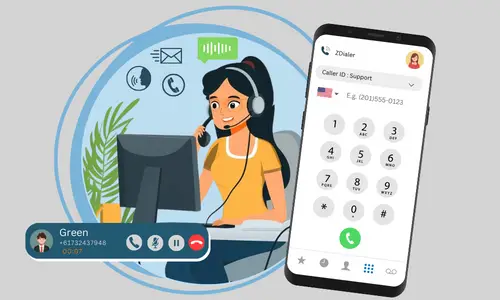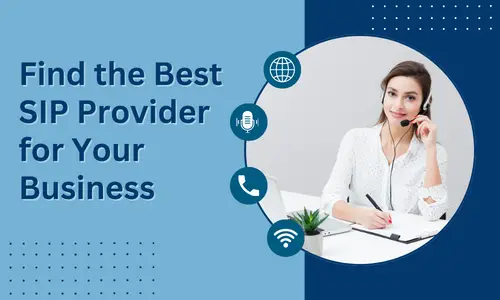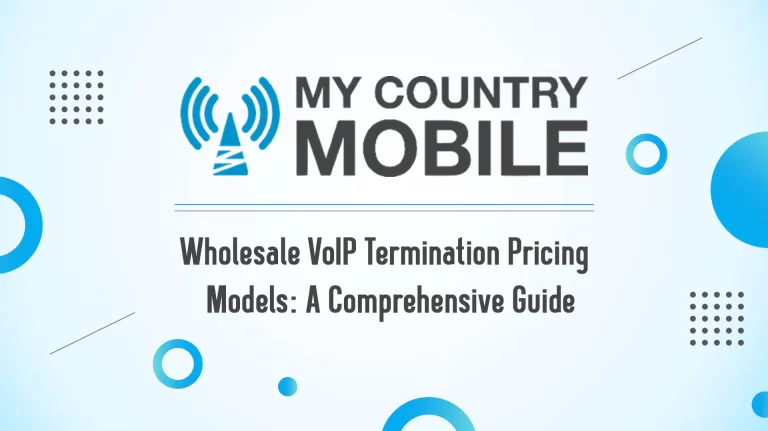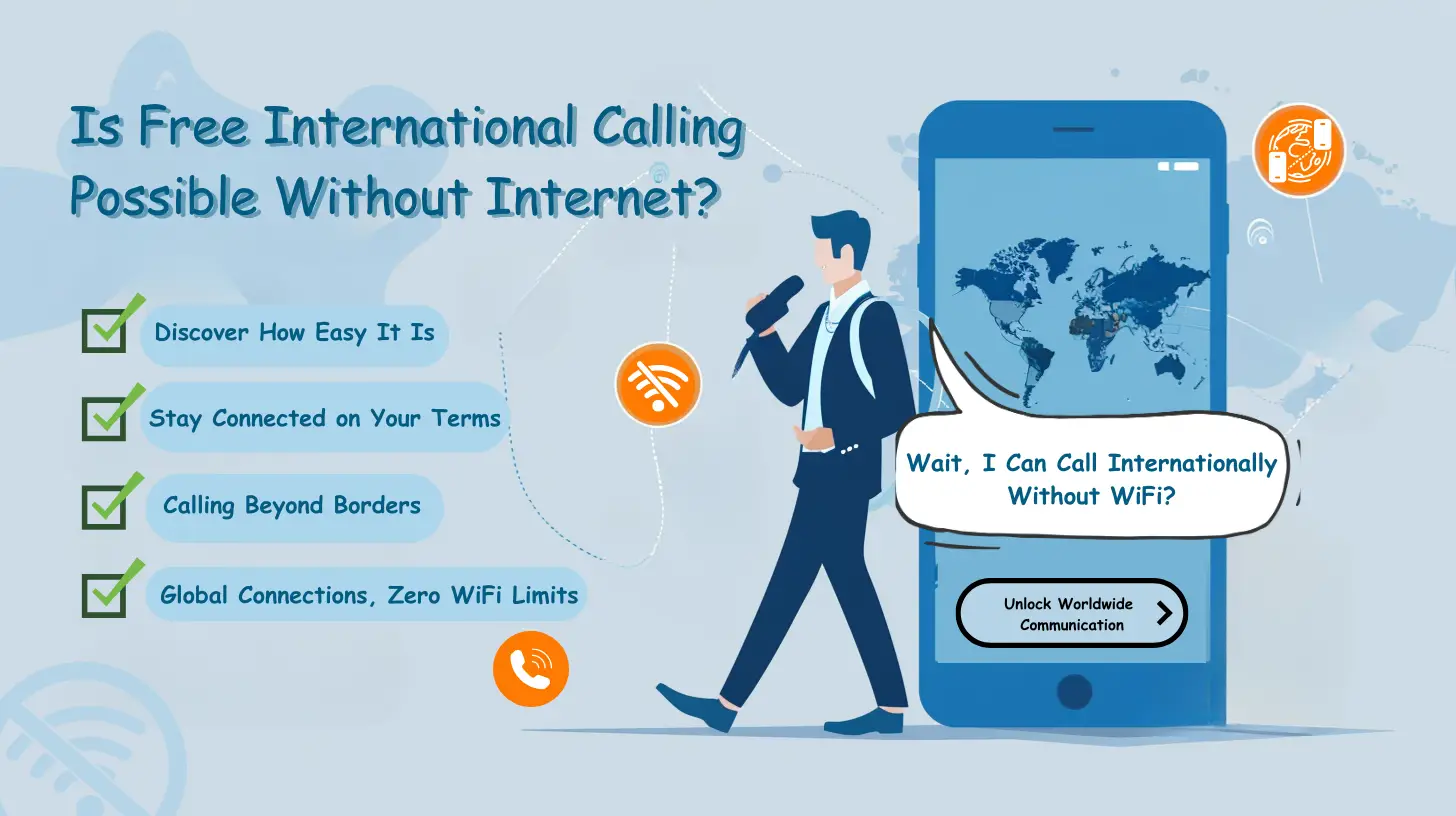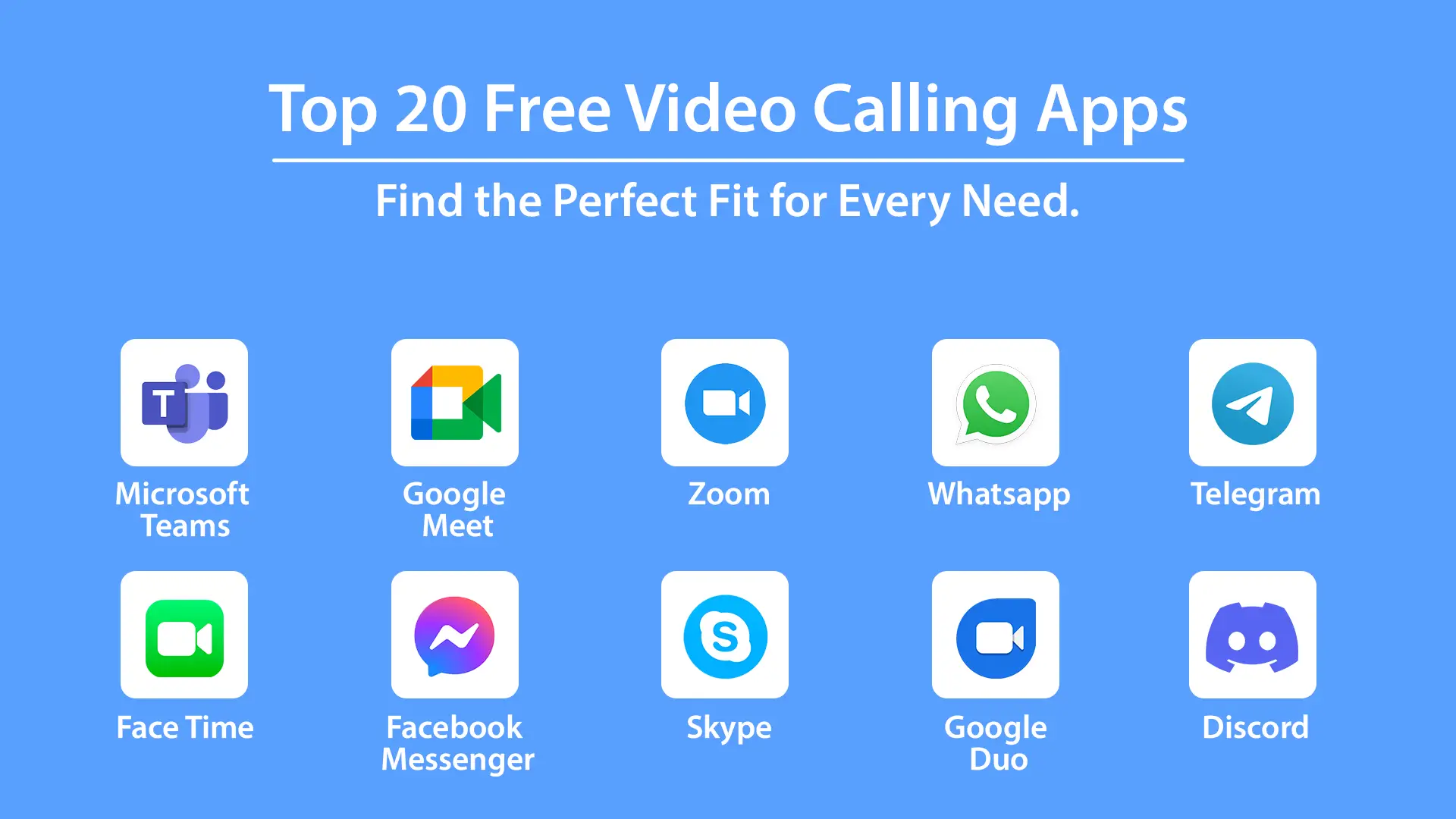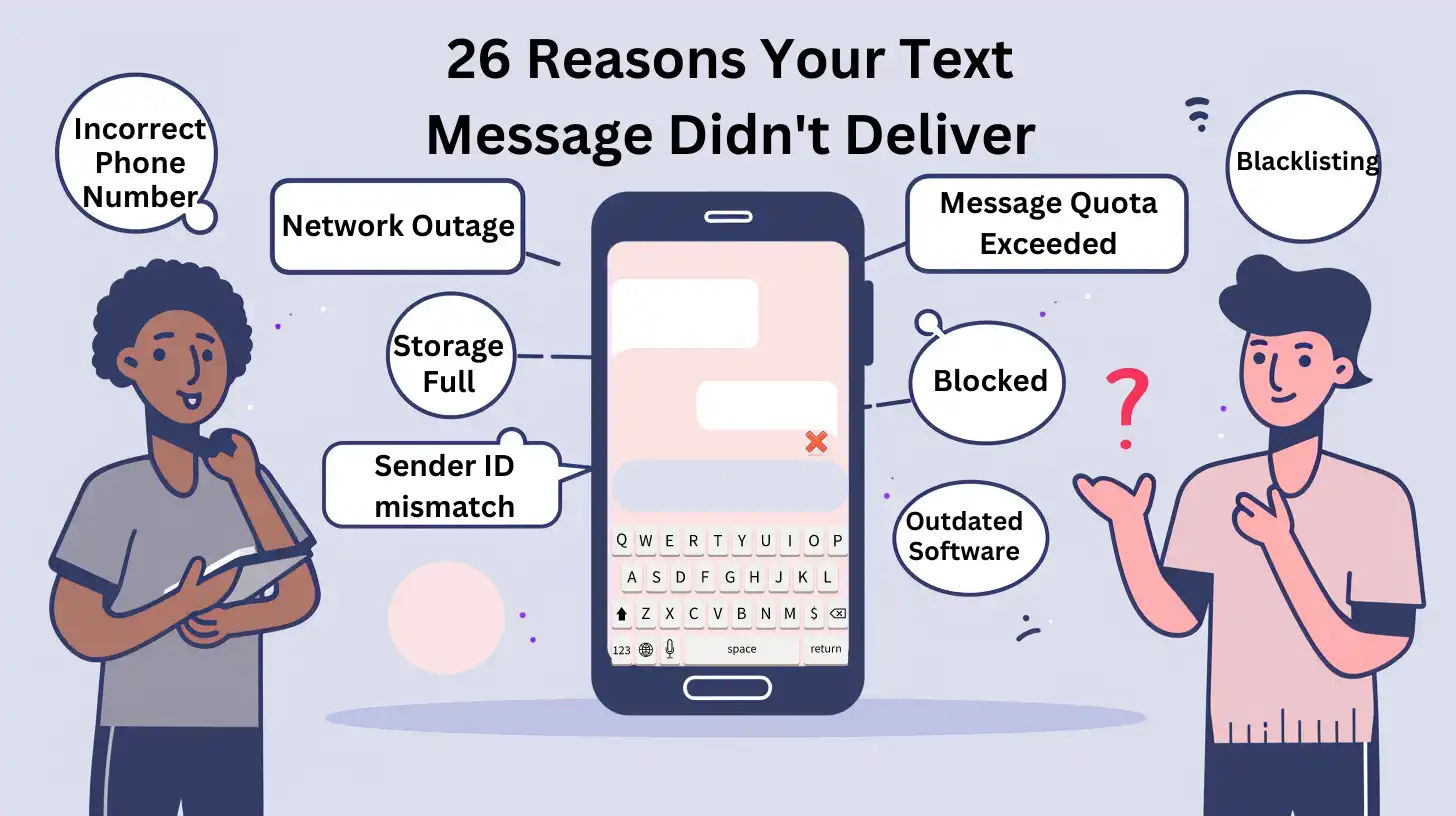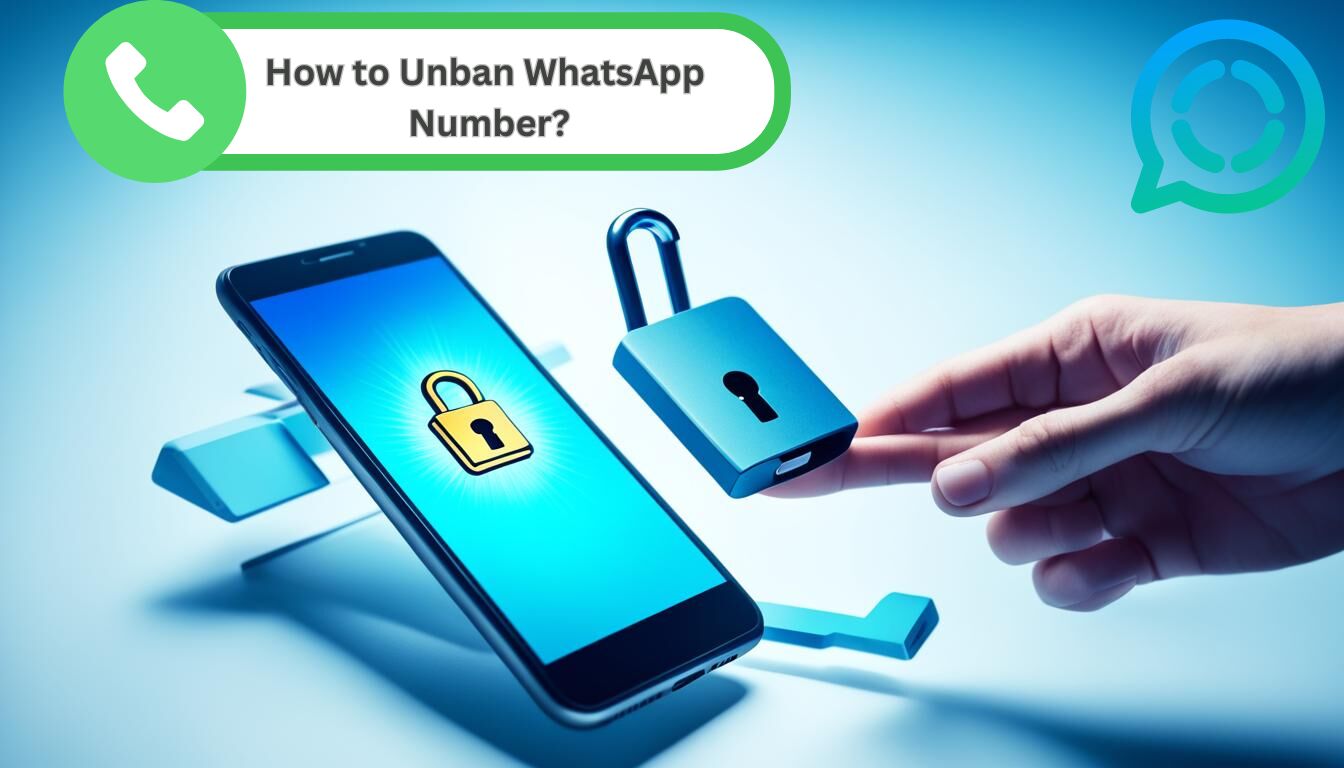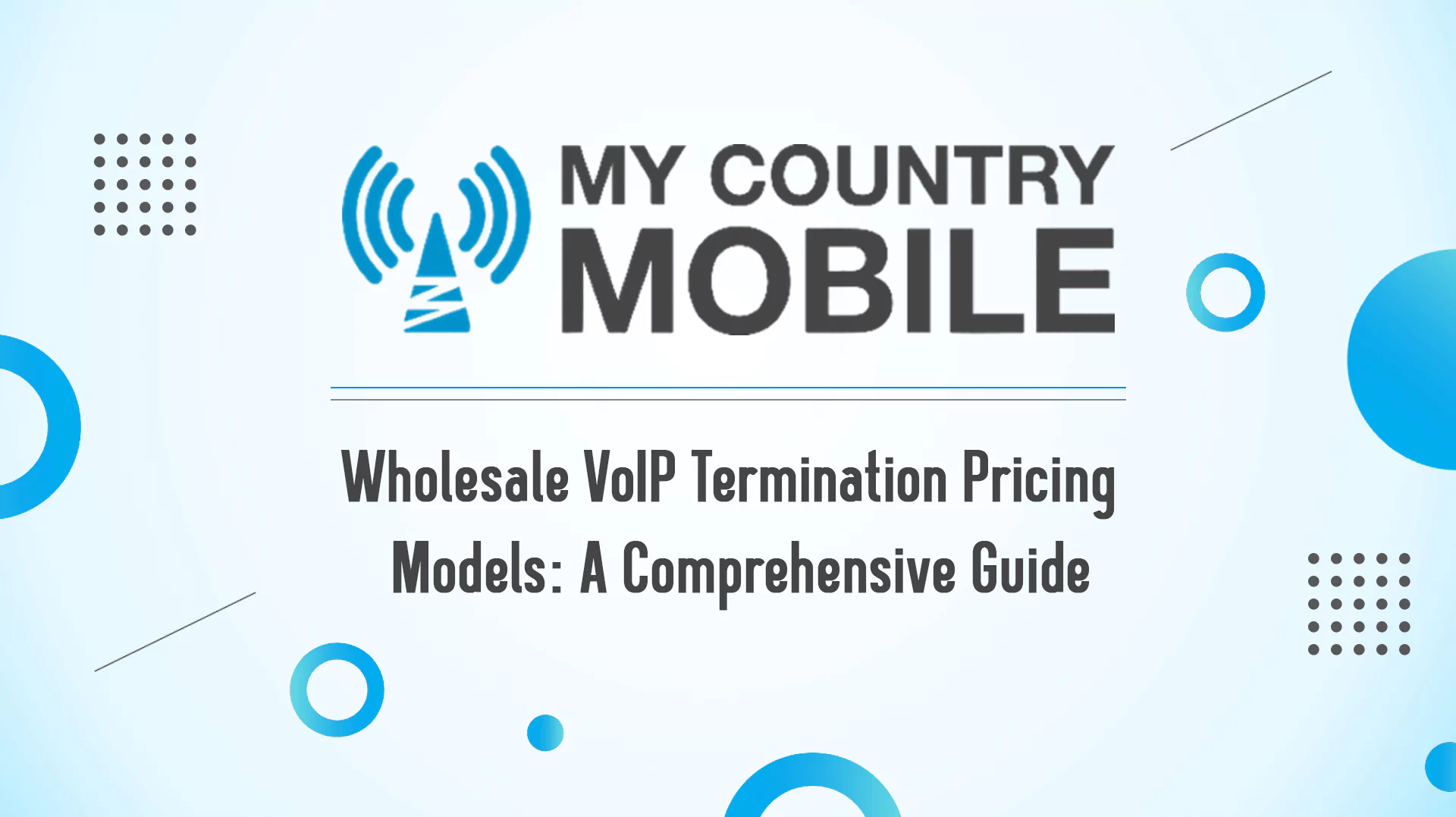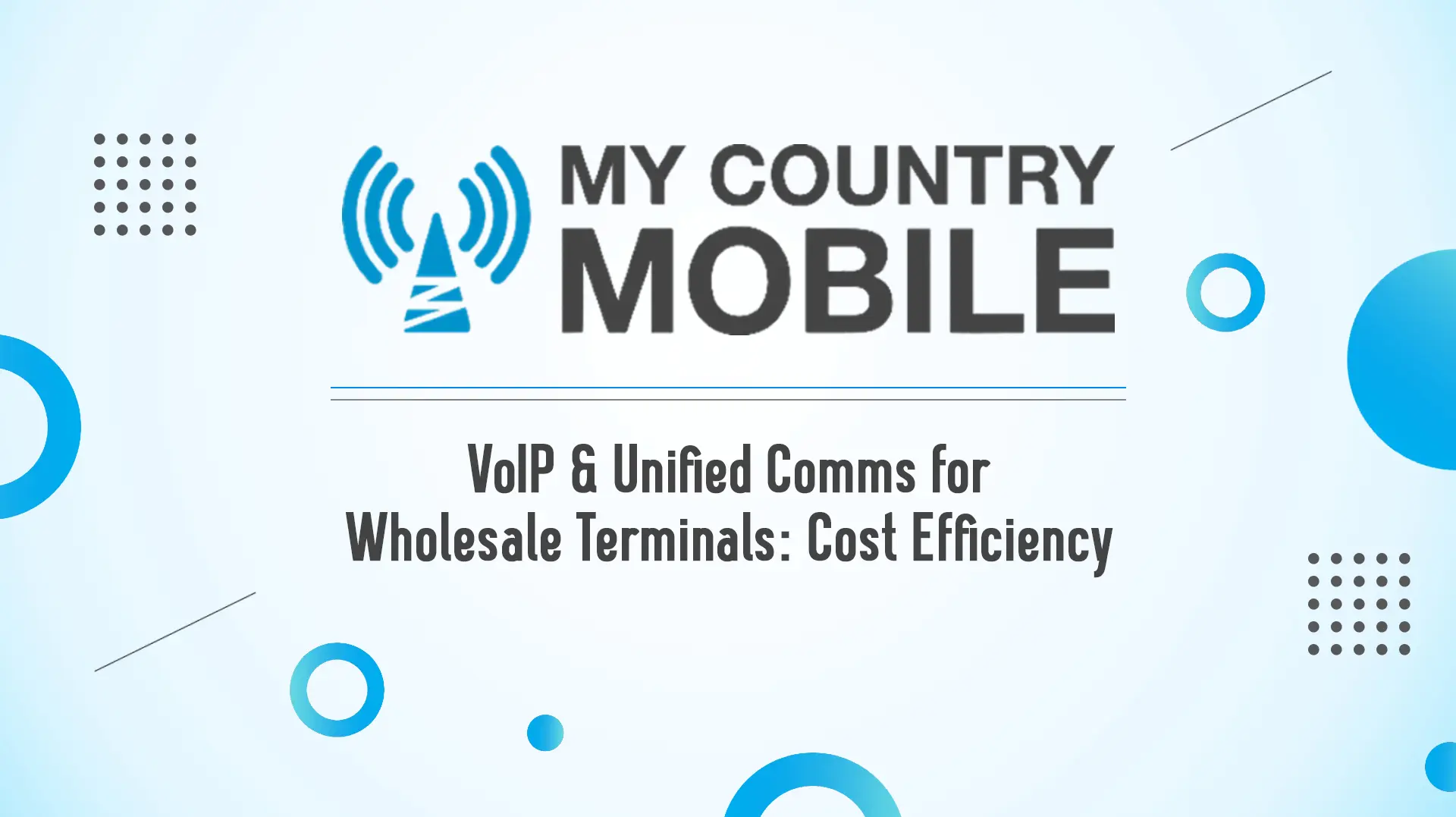Wholesale VoIP Termination Pricing Models: A Comprehensive Guide
Introduction
The telecommunications industry has evolved over the years, and the Voice over Internet Protocol (VoIP) system has become an integral part of it. Wholesale VoIP termination is a process that allows businesses to send phone calls made using their VoIP system to the public switched telephone network (PSTN). In simple terms, it enables you to make phone calls through the Internet.
Definition of Wholesale VoIP Termination
Wholesale VoIP termination is a service provided by telecommunication companies that specialize in routing and completing phone calls made via VoIP systems. It allows businesses to have a cost-effective solution for making long-distance phone calls. Wholesale VoIP termination providers offer their services to other telecommunication companies, often referred to as resellers.
These resellers then sell those services to their end users at a markup or commission. The primary purpose of wholesale VoIP termination is to provide reliable and competitive voice termination services that meet customers’ needs.
Importance of pricing models in Wholesale VoIP Termination
Pricing models play a vital role in wholesale VoIP termination because they determine how much resellers pay for the service they offer. A good pricing model takes into account different factors like call volume, call duration, destination country, etc., and aims to provide fair rates while ensuring profitability for both parties involved. Different pricing models exist in wholesale VoIP termination like the flat rate pricing model, tiered pricing model, and volume-based pricing model.
Each model has its pros and cons depending on various factors such as business needs, target market size, traffic patterns, etc. As such, it’s important for businesses looking for wholesale VoIP termination providers to understand these models so that they can choose the one that best suits them while ensuring competitiveness and profitability in their operations.
High-Level Overview of Pricing Models
When it comes to Wholesale VoIP Termination, there are three primary pricing models: Flat Rate, Tiered, and Volume-Based. Each pricing model has its own unique advantages and disadvantages that cater to different business needs. Therefore, it’s essential to understand the differences between these pricing models before choosing a provider.
Flat Rate Pricing Model
The Flat Rate pricing model is a simple billing method where you pay a fixed amount per minute for all calls. This model is ideal for businesses with predictable traffic as it provides them with stable monthly expenses. The simplicity of this model also allows businesses to quickly budget and allocate funds.
However, the downside of this pricing model is that it may not be cost-effective for businesses with fluctuating traffic patterns. Since the price per minute remains constant regardless of call volume, if your traffic falls below the expected volume, you’ll still be charged at the same rate.
Tiered Pricing Model
The Tiered pricing model operates on a sliding scale: The more minutes used, the lower the price per minute. Under this billing structure, providers offer tiers or buckets with varying rates for specific call volumes.
This pricing model encourages high-volume users to take advantage of discounted rates while still providing flexibility within each tier level. This strategy can result in significant savings by allowing companies to pay only what they use.
However, when using this pricing plan’s benefits depend on accurately predicting call volume needs. If you end up purchasing blocks that are too large or small for your needs, you could potentially waste money or face overage charges.
Volume-Based Pricing Model
The Volume-Based billing structure rewards clients who purchase large volumes of wholesale minutes by offering lower prices per minute than other plans like Flat Rate and Tiered plans; hence some providers refer to this type as “commitment-based” pricing. Generally, this model sets a baseline amount of usage, and if you’re willing to commit to it upfront, the provider offers lower per-minute rates.
This pricing model can be an excellent choice for businesses with high call volume as it incentivizes them to buy in bulk. However, businesses must be confident of their expected call volume for the upcoming period since underutilizing the plan could result in higher costs overall.
Overall, understanding these three primary pricing models will help you make an informed decision when choosing a Wholesale VoIP Termination provider. Next up, we’ll explore each pricing model’s pros and cons to determine which is right for your business’s needs.
Pros and Cons of the Flat Rate Pricing Model
The flat rate pricing model is a popular option in the wholesale VoIP termination industry. With this model, a fixed rate is charged for all calls with no variation based on usage. One of the main advantages of the flat rate pricing model is that it provides predictability and stability in billing.
This makes budgeting easier for businesses as they can accurately forecast their costs without worrying about any unexpected spikes or peaks in usage. However, one of the disadvantages of this pricing model is that it may not be cost-effective for businesses with fluctuating call volumes.
Businesses that experience high call volumes may end up paying more per minute than they would with other models like volume-based or tiered pricing models. Additionally, since all calls are charged at the same rate, there is no incentive for customers to reduce their call volumes to lower their costs.
How Tiered Pricing Model Works
The tiered pricing model is another popular option for wholesale VoIP termination providers. With this model, different rates are charged based on various tiers or levels of usage. For example, a provider may charge one price per minute for up to 10,000 minutes per month and then offer a lower price per minute for usage above that level.
<pstyle=”font-weight: 400;”>One advantage of the tiered pricing model is that it incentivizes customers to use more services by offering lower prices at higher usage levels. This can lead to increased loyalty from customers who feel they are getting a good deal from their provider.
However, one disadvantage of the tiered pricing model is that it can be difficult to predict costs since prices vary depending on usage levels. Additionally, if a business exceeds its allotted usage level in a given month, it will pay higher rates per minute which could offset any savings achieved by staying within lower tiers during other months.
Advantages and Disadvantages of Volume-Based Pricing Model
The volume-based pricing model is a type of tiered pricing model where discounts are offered for higher usage levels. With this model, customers pay a fixed rate per minute but receive lower rates as they use more minutes. For example, a provider may offer a rate of $0.01 per minute for up to 10,000 minutes and then offer a lower rate of $0.008 per minute for usage between 10,001-50,000 minutes.
One of the main advantages of the volume-based pricing model is that it provides cost savings for businesses with high call volumes since they can take advantage of the lower rates offered at higher usage levels. Additionally, since prices are still based on usage levels, customers can accurately predict their costs and budget accordingly.
However, one disadvantage of this pricing model is that it may not be as easy to understand or track compared to other models like flat rate or tiered pricing models. Customers may need to closely monitor their usage and calculate costs themselves in order to take full advantage of the discounts offered at higher tiers.
Rarely Known Small Details on Wholesale VoIP Termination
When it comes to Wholesale VoIP Termination, there are a few details that are often overlooked but can have a significant impact on pricing. One such detail is the location of the termination provider’s data center. The closer the data center is to your business, the lower your costs will be due to reduced latency and transportation costs.
Additionally, it’s important to consider the quality of service that a termination provider offers as this can greatly affect call clarity and reliability. Another key factor in determining Wholesale VoIP Termination prices is the type of network that a provider uses.
Some providers use Tier 1 networks, while others use lower-tier networks or even resell services from other providers. It’s important to choose a provider with a high-quality network to ensure reliable service and avoid potential issues with call quality.
It’s crucial to consider any potential fees or add-ons that may be charged by termination providers. These can include costs for porting phone numbers, emergency services fees, or additional charges for international calls.
Factors that Affect Wholesale VoIP Termination Prices
There are several factors that can influence the pricing of Wholesale VoIP Termination services beyond basic technical considerations. One important factor is market demand – if there is high demand for services in your area, prices may be higher than in areas with less competition.
Another key factor is scalability – some wholesale providers offer discounts for larger volume commitments or contracts with longer terms. Additionally, regulatory requirements can also play a role in pricing as some countries impose additional taxes or fees on communication services.
How to Choose the Right Wholesale VoIP Termination Provider for Your Business
Choosing the right Wholesale VoIP Termination provider for your business requires careful consideration of several different factors. First and foremost, you’ll want to research each prospective provider’s reputation and reliability by reading reviews, researching their track record, and speaking with other businesses that have used their services.
<pstyle=”font-weight: 400;”>You’ll also want to compare pricing models, features, and customer service options offered by different providers to identify the best fit for your specific business needs. Additionally, it’s important to consider any integration abilities that a termination provider offers with your existing network or phone systems.
Tips for Negotiating Wholesale VoIP Termination Prices
Negotiating Wholesale VoIP Termination prices is an important aspect of getting the best possible deal for your business. One key strategy is to leverage volume commitments or longer-term contracts as this can often result in lower costs per minute. It’s also important to be clear about your budget limitations and negotiate from a position of strength.
Consider asking multiple providers for quotes so you can compare pricing and leverage better deals. Don’t overlook the importance of building strong relationships with your termination providers – they may be more willing to negotiate if they feel valued as a partner in your business success.
After exploring the various pricing models for Wholesale VoIP Termination, it is clear that each model has its own set of pros and cons. The flat rate pricing model provides a predictable cost structure, while the tiered pricing model allows for flexibility in usage. Meanwhile, the volume-based pricing model offers cost savings for high-volume users.
It is crucial to consider factors such as call quality, customer service, and reliability when choosing a Wholesale VoIP Termination provider. Additionally, negotiating prices with providers can lead to significant cost savings.
Looking forward, the future of Wholesale VoIP Termination prices is likely to be influenced by technological advancements and market competition. As technology continues to improve and new players enter the market, prices may become more competitive overall.
Overall, understanding the nuances of Wholesale VoIP Termination pricing models can help businesses make informed decisions about which provider to choose and how to optimize their usage for maximum cost savings. By staying up-to-date on industry trends and monitoring their costs carefully, businesses can stay ahead in an increasingly competitive market.

